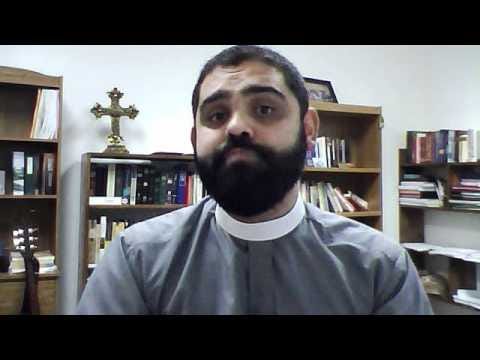Welcome once again to our study of David Chilton’s Days of Vengeance. I am Uri Brito and I blog at apologus.wordpress.com.
We are going to delve briefly into Chilton’s introduction. There are two important elements in understanding Revelation, and they are to know the author and the date of the book. Concerning the author there is virtually unanimous testimony that it was the same John who wrote the Fourth Gospel (1). John, according to Chilton, writes in an “authoritative, “apostolic” style, not to individuals merely, but to the Church” (1). There is little to no dispute John wrote this letter. In fact, Revelation uses Johannine language like the expression Lamb of God, which is distinctly used by John in his gospel.
The same question is a lot more complicated. When did John write Revelation? This is a highly disputed question, because once you come to a conclusion on the date, you will most likely be led to a particular hermeneutic; and that hermeneutic will drive your view of the entire book. Chilton’s premise is that Revelation was written before the destruction of the temple in AD 70. This position is typically called Preterism. Preterism means past. That is, the events of Revelation are not primarily futuristic–though there are many principles we can apply to our context– but primarily, Revelation has the first century audience in mind. If you have the energy to pursue this topic further, Kenneth Gentry has written a lengthy and scholarly work entitled Before Jerusalem Fell, which makes a strong case for a pre-AD 70 reading of this book.
David Chilton offers a few reasons as to why he believes John, the Apostle, wrote this letter to his first century audience:
First, as we referenced in our first video, Chilton argues that Revelation is a book about worship. Naturally, the book is full of liturgical allusions; and it actually contains minute details. Who could have known of these details unless he were intimately familiar with the actual service in theTempleitself. John fits the bill. John, as Chilton argues, was a priest. If this is the case, John was writing about aTemplestill in existence, which would lead to a pre AD 70 letter.
Second, Chilton argues that there is an a priori teaching from Scripture that all special revelation ended by AD 70. The argument is that Daniel’s prophecy in chapter 9:24-27 of the seventy weeks would end at the destruction ofJerusalem. And what would happen then, according to Daniel? That period would seal up the vision and prophecy. In other words, the sealing up of vision and prophecy referred to the Word of God, which would be completed before the destruction of the temple. Revelation was not a late first century book, but actually written closer to the other books in the New Testament canon.
Finally, there are time references in chapter one that lead us to conclude that the book is an early book. John says these things will happen “soon,” “quickly,” etc. These are time indicators proving that John was intentional about his language. Soon meant within that generation, not two thousand years later. For John, Revelation was the final judgment on apostateIsrael. It would mark the transition from an old world to a new world with a new Lord, Jesus Christ.
We will stop here, but feel free to leave a comment or any question both here on the youtube page or on my blog apologus.wordpress.com. We will continue our look at Chilton’s introduction next time. Peace be with you.
The post Study on the Book of Revelation appeared first on Resurrectio et Vita.


